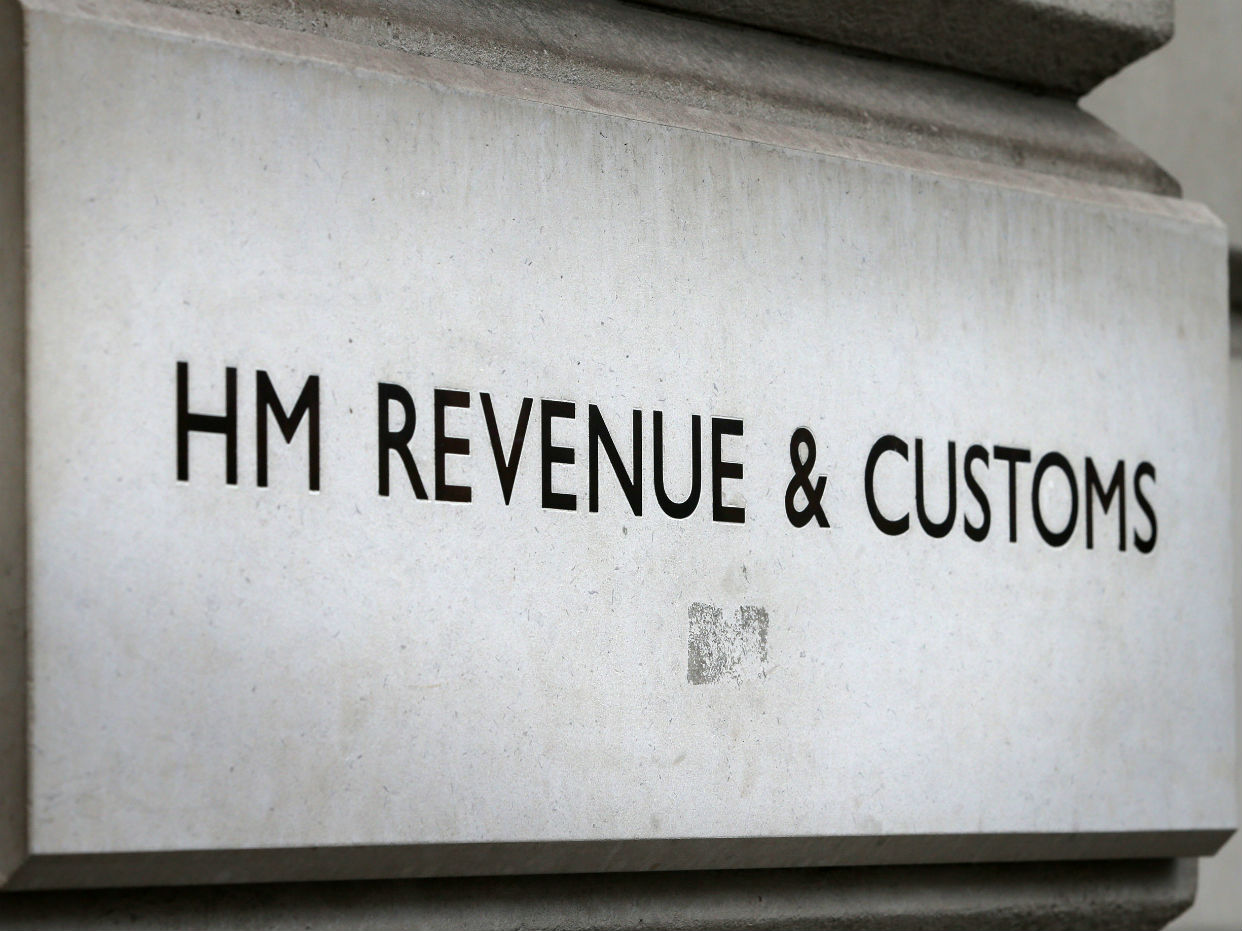Solar panel bills to rise by £900 after EU court ruling
Campaigners demand more 'push-back' from the government after VAT ruling

A free daily email with the biggest news stories of the day – and the best features from TheWeek.com
You are now subscribed
Your newsletter sign-up was successful
The government is again being criticised for its energy policies, after it was revealed that VAT on home solar and wind-powered generators is to be quadrupled.
HM Revenue and Customs revealed yesterday the tax rate would rise from five per cent to 20 per cent as of next August, subject to a consultation that closes in February. The Solar Trade Association said it would add £900 to an average domestic solar panel installation, The Guardian reports.
This is not actually the result of a change in policy from within Amber Rudd's energy department. Rather it is the consequence of a court case in Europe earlier this year, the result of which has now been upheld by the European Commission.
The Week
Escape your echo chamber. Get the facts behind the news, plus analysis from multiple perspectives.

Sign up for The Week's Free Newsletters
From our morning news briefing to a weekly Good News Newsletter, get the best of The Week delivered directly to your inbox.
From our morning news briefing to a weekly Good News Newsletter, get the best of The Week delivered directly to your inbox.
Business Green says the European Court of Justice ruled in June that solar or wind power generators added to properties could not be considered 'renovation to a property' and so would no longer qualify for that exemption from the full VAT rate.
Under the proposals, other energy saving measures such as insulation or draught stripping for windows and doors, will remain eligible for the lower rate of VAT. This is because they are deemed to contribute to the "renovation' of a property".
But campaigners have demanded more "push-back' from the government to Brussels – and have said the changes could amplify the effects of a major cut in solar subsidies that is expected to be confirmed next week (see below).
"A vital part of the sustainable energy future being championed in Paris today is being undermined in London by changes to VAT that must be resisted," said Doug Parr, chief scientist at Greenpeace UK.
A free daily email with the biggest news stories of the day – and the best features from TheWeek.com
"In addition to the confusion created by dramatic cuts to solar support, this creates a new round of uncertainty for business, and more expense for homeowners who are seeking to do their bit for the climate, as loudly requested by David Cameron last week."
A government spokesperson said: "Despite the EU's ruling, we will continue to help the most vulnerable, such as the elderly, with the installation of energy saving materials, by retaining the vast majority of the relief on energy saving materials."
'Draconian' subsidy cuts blamed for solar firms' collapse
8 October
Two solar panel installation firms have gone into liquidation, putting more than 1,000 jobs at risk, with the boss of the US energy giant behind one of them pointing the finger at "draconian" cuts to government renewable energy subsidies.
The Financial Times reports SunEdison, the US-listed group, “rounded on ministers” after Mark Group, the Leicester-based home insulation business it acquired only months ago, was put into administration. In a stark statement it blamed cuts to subsidies announced in August that it said "will essentially eliminate the solar… market in the UK."
The Guardian adds that Climate Energy, a company specialising in installing solar panels and home insulation, has also been forced into liquidation. Its administrators issued a statement saying the cuts were a “contributory factor” in the company’s demise.
Around 30 of the 128 Climate Energy staff have already been laid off by FTI Consulting, the administrator brought in to try to find a buyer. Close to 1,000 jobs have been lost following the failure of Mark Group, with another 200 at risk if a buyer cannot be found for the remaining operations.
Amber Rudd, the energy minister, announced a series of cuts earlier this summer, including a reduction in the guaranteed price paid for electricity generated by new rooftop solar installations by up to 87 per cent. The government has said the existing levels of support are no longer needed as the industry has reached critical mass – and that it must act to protect customers, who ultimately pay for subsidies through green levies paid by suppliers and passed on in energy bills.
But SunEdison branded the scale of the cut “draconian”. The term was also used by Conservative MP David Warburton, who called for a policy re-think and said the scale of the reductions was “more than I suspect the industry can bear”.
The Guardian notes that the collapse of the companies will affect customers who had paid for an installation that was yet to take place, although a refund should still be possible from the administrators or a credit card provider. For those who already have solar panels installed, the cuts to subsidies will not take place until the end of the existing contract, which would typically last up to 25 years.
Renewable energy: fresh subsidy cuts spark row
24 July
A fresh wave of government cuts to renewable energy subsidies has sparked a row with lobbyists and industry groups, who accuse the government of taking the UK "back to the dark ages" of reliance on fossil fuels.
The Department for Energy and Climate Change published several papers earlier this week, which outlined plans to cut subsidies for small-scale solar schemes under its "renewable obligation". The scheme offering financial support for solar plants producing less than five megawatts will end one year earlier than planned.
Another change will see subsidies for wood chip biomass generators cut, which the government claims could save billpayers £500m a year. Separately a consultation was launched which could in future curb 'feed-in-tariffs' which apply to rooftop solar panels.
The Government says the cuts are an attempt to limit the costs falling on household energy bills, which pay for the subsidies under the levy control framework. Official projections suggested the costs of the subsidies would increase above a £7.6bn spending cap to £9.1bn, adding up to £18 to average energy bills.
However, the Financial Times points out the predicted £1.5bn overspend is still within the 20 per cent "headroom" which the Treasury is able to allocate to renewable energy subsidies. Richard Kirkman, UK technical director of French waste and recycling company Veolia, said the cuts would take Britain "back to the dark ages".
The Guardian highlights criticism of the cuts to small solar schemes, which it says could save just 50p a year from energy bills and which the energy industry has claimed are among the most efficient ways for the Government to meet renewable energy targets. One 5MW scheme can produce power for up to 2,500 homes.
But energy secretary Amber Rudd said the Government had to protect consumers and that support already offered had brought down the cost of energy and that the measures would ensure it balances the need to protect consumers, whilst protecting existing investment."
The moves come one month after the Government cut onshore wind farm subsidies, in a decision that has been criticised by Scottish National Party leader Nicola Sturgeon. Scotland accounts for 70 per cent of all onshore wind developments.
Wind farm subsidies axed a year ahead of schedule
18 June
Government funding for onshore wind farms will be abolished a year ahead of schedule, in a controversial move that has angered the industry and environmentalists.
Energy and Climate Change Secretary Amber Rudd said the country now had "enough subsidised projects in the pipeline to meet our renewable energy commitments", the BBC reports. From April next year, windfarms will be excluded from the department's subsidy scheme
Rudd also said the government wanted to encourage technologies to "stand on their own two feet" and not rely on public subsidies. The money taken away from wind farms would be invested in other technologies, but she refused to say what those would be.
Under the new rules, which were included in the party's manifesto commitments, turbines that have already received planning permission will be allowed to go ahead. They will also give local residents – instead of the government – the power to veto proposed wind farms for the first time.
Environmentalists have criticised the move, arguing that onshore wind is the cheapest and most readily available renewable energy in the country, and that the decision will pave the way for more destructive forms of energy production like fracking.
The onshore wind industry also attacked the decision, with trade body Renewable UK calling for an emergency meeting with the energy department to discuss the financial and environmental implications of the move, reports The Guardian.
The decision will have a "disproportionate impact" on Scotland, said Fergus Ewing, the Scottish minister for business, energy and tourism and member of the Scottish parliament. He warned Westminster that the decision could be the subject of a judicial review.
Roger Harrabin, the BBC's environment analyst, says some business leaders are "baffled" why ministers would give local people a veto over wind turbines, when they cannot block fracking – "or even a nuclear power station on their doorstep".
The decision to end the subsidies is "pure politics", says The Guardian's Damian Carrington. "Too many Tory voters dislike the look of turbines and their party has delivered for them, whatever the fallout," he says.
-
 What are the best investments for beginners?
What are the best investments for beginners?The Explainer Stocks and ETFs and bonds, oh my
-
 What to know before filing your own taxes for the first time
What to know before filing your own taxes for the first timethe explainer Tackle this financial milestone with confidence
-
 The biggest box office flops of the 21st century
The biggest box office flops of the 21st centuryin depth Unnecessary remakes and turgid, expensive CGI-fests highlight this list of these most notorious box-office losers
-
 Clean energy tax credits are going away. Here's how to get them before it's too late.
Clean energy tax credits are going away. Here's how to get them before it's too late.The Explainer Trump's recently passed megabill promises the early demise of clean energy tax credits
-
 When do solar panels make sense? What to consider before going solar.
When do solar panels make sense? What to consider before going solar.The Explainer It's a big and costly project, but benefits include long-term savings and property value increase
-
 Brits keeping 21 million ‘money secrets’ from friends and family, survey reveals
Brits keeping 21 million ‘money secrets’ from friends and family, survey revealsSpeed Read Four in ten people admit staying quiet or telling fibs about debts or savings
-
 London renters swap cramped flats for space in suburbia
London renters swap cramped flats for space in suburbiaSpeed Read New figures show tenants are leaving Britain's cities and looking to upsize
-
 Should the mortgage holiday scheme have been extended?
Should the mortgage holiday scheme have been extended?Speed Read Banks warn that some homeowners may struggle to repay additional debt
-
 RBS offers coronavirus mortgage holidays
RBS offers coronavirus mortgage holidaysSpeed Read Taxpayer-owned bank follows measures taken in virus-struck Italy
-
 What are the changes to National Savings payouts?
What are the changes to National Savings payouts?Speed Read National Savings & Investments cuts dividends and prizes for bonds
-
 China clears path to new digital currency
China clears path to new digital currencySpeed Read Unlike other cryptocurrencies, Beijing’s would increase central control of the financial system